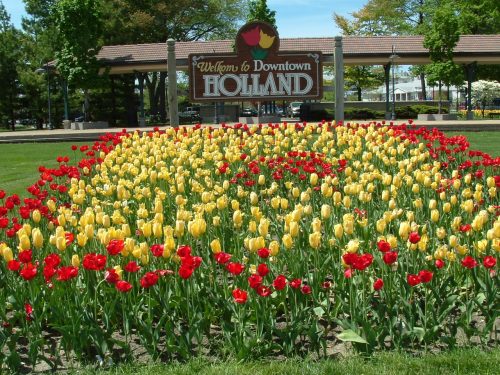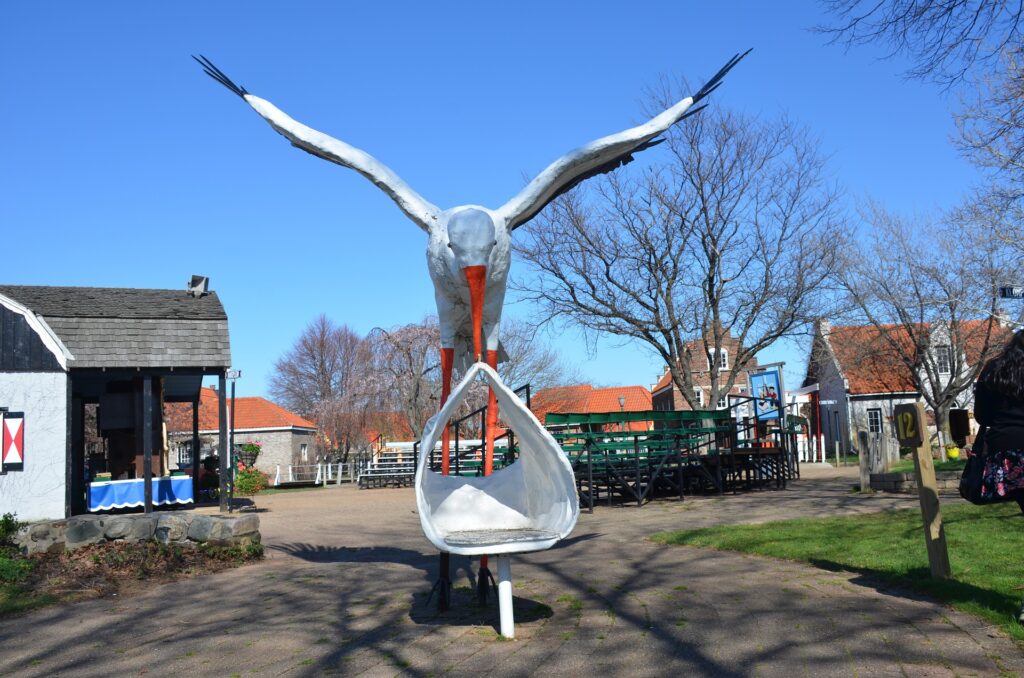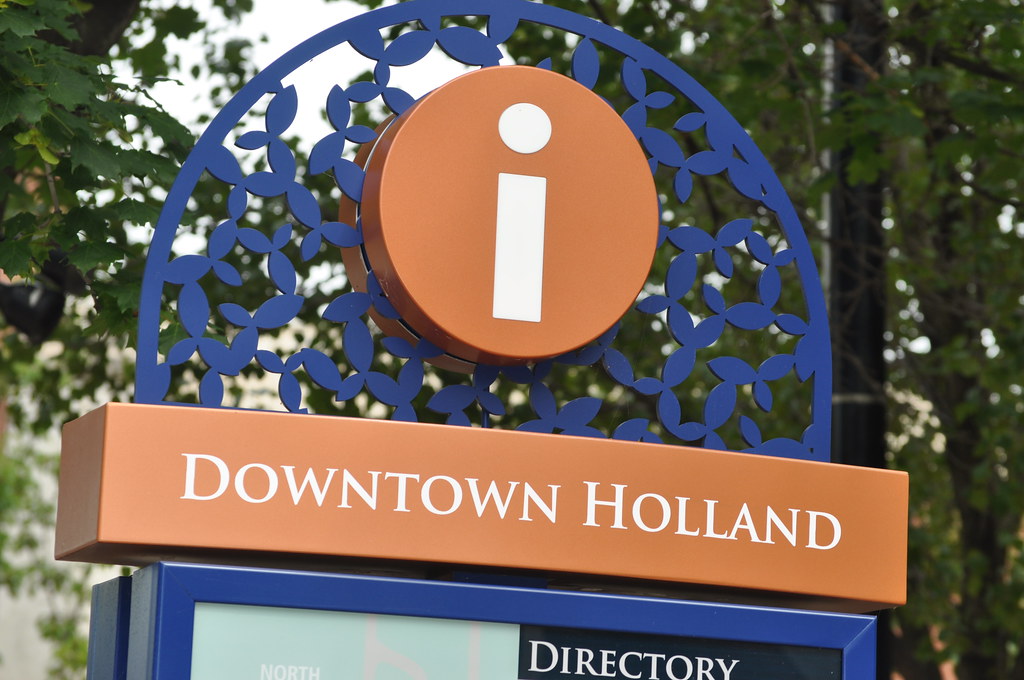The City Of Holland, MI

Holland is a city in Michigan’s Lower Peninsula, located in the western part of the state. It is located on Lake Macatawa, which is fed by the Macatawa River, near the eastern shore of Lake Michigan (formerly known locally as the Black River).
The city straddles the county line between Ottawa and Allegan, with 9.08 square miles in Ottawa and 8.13 square miles in Allegan. The population is around 33,000 residents.
Holland is the county seat of Ottawa County and is part of the Grand Rapids–Kentwood–Muskegon Combined Statistical Area as of 2013. Holland was founded by Dutch Americans and is located in an area with many Dutch Americans. Hope College and Western Theological Seminary, both Reformed Church in America institutions, are located there.
History Of Holland Michigan

For the first time since 1847, the Nazi invasion of The Netherlands in May 1940 caused a halt in Dutch immigration to the Holland, MI area. Local factories produced a variety of materials for the war effort, and labor shortages drew migrant workers from Texas and Mexico to the Holland area, resulting in a new Latino community. Following World War II, Michigan lost its status as the country’s center of Dutch immigration. In proportion to the area’s overall population, Holland’s ethnic Dutch community began to dwindle. New manufacturing companies with a diverse workforce relocated to Holland, launching one of the country’s most vital and productive manufacturing regions. Holland’s population increased from 3,000 in 1897 to 15,000 in 1947 and then to 30,000 in 1997.
Modern services were introduced to the City of Holland during the nineteenth century. This included telephone, water, electricity, gas, and sewer, all of which improved residents’ daily lives. Local civic leaders established the “Bonus Plan” in 1895, which provided incentives to attract manufacturers to Holland. This tradition of being business-friendly continues today, with new businesses based on new technology and infrastructure designed to support new ventures.
The Holland Museum was founded in 1914 to preserve Holland’s history and is still open today. There’s The Settlers House, a restored and historically accurate replica of a typical Holland settler’s home. There’s also the Cappon House, which served as the residence of Holland’s first mayor. Visitors can step back in time to the forefathers’ era, which has been partially restored and historically accurate.
Services Offered
In Holland, Michigan, animal removal services are offered for residents in need of assistance. Nuisance wildlife trapping is the process of humane wild animal removal from Holland homes. Due to the potential damage caused by Michigan wildlife, wild animal control experts provide animal removal, wild animal damage repair, attic restoration, and feces cleanup services. Wildlife control in Michigan can only be done by licensed professionals. Some of the services offered are:
- Bat Removal Company Holland MI
- Mole Trapping Service in Holland
- Raccoon Control in Holland
- Holland MI Squirrel Removal
- Holland Michigan Animal Removal
Arts & Entertainment In Holland
Through high-quality art exhibitions, education, and advocacy, the Holland Area Arts Council coordinates special community activities and collaborative events with other community organizations, serving more than 5,000 people annually.
The Holland Historical Trust emphasizes the past’s ability to shape the future. The Museum, Capon House, and Settler’s House all have educational facilities and collections representing a diverse heritage and are open to the public.
The Knickerbocker Theatre, which opened in 1911, is located in the heart of Holland. This historic theatre is open to the public and shows a wide range of films as well as hosting a variety of cultural events throughout the year.
Nelis’ Dutch Village transports visitors to a century ago in the Netherlands, complete with authentic Dutch architecture, flowering gardens, canals, and windmills. The Dutch’s history and culture are brought to life by associates dressed in traditional Dutch garb, including wooden shoes, who demonstrate traditional crafts and daily life.
The Tulip Time Festival is a multi-generational celebration of Dutch heritage and culture, with three impressive parades, multiple Dutch Dance performances, concerts, theatre, Dutch attractions, Dutch food, children’s events, trolley tours, and more.
Veldheer is the only tulip farm perennial garden in Holland. Over five million tulips have been planted for visitors to enjoy.
Holland, MI Demographics

- Population: 33,216
- Population Under 18: 21%
- Population Over 65: 15.9%
- People Per Household: 2.48
- Average Work Commute Time: 17.1 min
Public Education In Holland
Holland Public Schools, founded in 1848, is a school district in Holland, Michigan, United States. There are 314 teachers on staff, each with an average of 14 years of experience and a master’s degree. They teach core curriculum as well as art, music, athletics, theater, forensics, K-12 Spanish, technology literacy, special education, English as a Second Language, and extracurricular activities.
Holland’s Media Outlets
The Holland Sentinel, founded in 1896, is a six-day-a-week newspaper published in Holland, Michigan, United States. GateHouse Media is the publisher. Most of Ottawa County, including Holland, Beechwood, Ferrysburg, Grand Haven, and Zeeland, as well as northwestern Allegan County, Michigan, including Douglas and Saugatuck, are covered by the newspaper.
Athletics In Holland, Michigan
Holland Public School students have the opportunity to compete in interscholastic sports as members of Dutch athletic teams. Over 450 students compete on 37 athletic teams in 21 varsity sports at the high school level.
